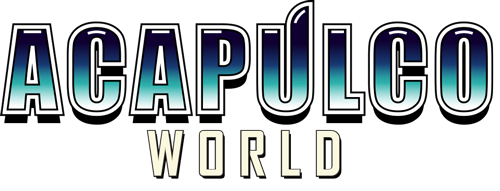Anxiety and Alcohol: Is There a Connection?

Consider beverages that replenish electrolytes, such as sports drinks or coconut water, to restore balance more effectively. Our compassionate clinicians meet you where you are on your recovery journey and create personalized treatment plans to help you heal. We incorporate evidence-based therapies into individual counseling, family therapy, and group sessions. With this kind of holistic treatment, recovery from AUD and anxiety is possible.
Alcohol intolerance
Long-term heavy drinkers may be predisposed to developing an anxiety disorder. However, there is no evidence that moderate drinking will cause anxiety. The long-term consequences of alcohol abuse can be a variety of health problems, including mental health disorders. Using alcohol to cope with social anxiety disorder can be dangerous.
Racing Heart
- It is usually taken once daily and can be combined with other medications for anxiety.
- The effects of withdrawal often ease 5 to 7 days after drinking ends.
- Alcohol disrupts sleep patterns, leading to insomnia or fragmented sleep, which can worsen anxiety.
- If it’s something that persists for days, or happens even when you cut back on drinking, then try to check in with a mental health professional.
If you do wind up with one, taking a nonsteroidal anti-inflammatory, like aspirin, can help ease the pain. The Cleveland Clinic recommends that you avoid taking acetaminophen—found in Tylenol—since it can be toxic when there’s alcohol in your system. If you’re prone to anxiety after getting drunk, then the only way to prevent this from happening is by consuming less alcohol, says Dr. Bogenschutz.

Coping Mechanisms for Anxiety

If it’s something that persists for days, or happens even when you cut back on drinking, then try to check in with a mental health professional. Of course, finding an affordable therapist who you feel comfortable talking to can be challenging. If you have health insurance, ask your provider for recommendations. Otherwise, you can research therapists in your area and ask if they accept sliding-scale fees. Many mental health experts are conducting appointments through video chat or phone calls during the pandemic, so you don’t need to physically go into an office.
Careers

If a person regularly drinks to the point where alcohol panic attacks are the norm, it is a sign of addiction. If a person drinks regularly, the natural GABA and serotonin levels can get destabilised, making withdrawal symptoms and anxiety attacks worse. Approximately 30-50% of individuals with alcohol-induced anxiety disorder report difficulty concentrating. This is especially noticeable during withdrawal, as the brain struggles to regain normal functioning without alcohol.

Before delving into the potential effects of decaf coffee on anxiety, it’s essential to understand what decaf coffee actually is. Contrary to popular belief, decaf coffee is not simply regular coffee with the caffeine magically removed. Instead, it undergoes a specific decaffeination process that aims to remove most of the caffeine while preserving the coffee’s flavor and aroma. Aside from physiological causes, hangxiety is also related to psychological factors, such as regret and worry, expectations, and mental health conditions.
- Commercials, films, and even friends and loved ones might recommend alcohol for anxiety as a solution to your problem.
- Instead of needing one glass of wine to relax you, you’ll likely need two, and then three, and so on.
- Nawrot, P., Jordan, S., Eastwood, J., Rotstein, J., Hugenholtz, A., & Feeley, M.
- To understand how decaf coffee might affect anxiety, it’s crucial to examine the relationship between caffeine and the nervous system.
- Signs include skin flushes and a feeling of being either wound up or very sleepy.
The Bigger Picture: Lifestyle Factors and Anxiety Management
This anxiety may be the result of the chemical withdrawal, but is also often related to people using anxiety as a way to self-medicate for stress. Learning new and healthy coping tools and engaging in a long-term anxiety treatment plan is beneficial. Your best bet to avoid hangxiety is to drink responsibly, says Dr. Trahan. Unfortunately, some people with anxiety, depression, or other mental health disorders turn to alcohol as a way to self-medicate or suppress the symptoms of anxiety.
When anxiety is overwhelming, relaxation techniques can help pull you out of thought rumination. If you’re being hard on yourself about what you did under the influence of alcohol, self-compassion can help. Anxiety can become a health problem if it affects your ability to live your life as fully as you want to. However, it is important to use this medication under strict medical supervision. Fluoxetine is typically prescribed for moderate to severe anxiety. It is taken daily, with dosage adjustments based on the patient’s response.
Psychiatrists are doctors who have specialized training in diagnosing and treating complex mental health conditions through medication management. If you are experiencing symptoms of a mental health condition such as depression, anxiety, bipolar disorder, PTSD, or similar, a psychiatrist may be a good place to start. Your body, however, is always looking to establish equilibrium, or balance. A heavy influx of alcohol can lead to your body blocking its own GABA receptors in an attempt to re-establish this equilibrium. With fewer GABA receptors available, your body can naturally absorb less GABA, which inhibits your ability to naturally calm down and can lead to panic attacks.
Alcohol support services

This phenomenon, often referred to as “hangxiety,” stems from alcohol’s impact on neurotransmitter levels and its ability to disrupt the body’s stress response system. Following a bout of heavy drinking, individuals anxiety attack after drinking may experience heightened feelings of anxiety, irritability, and low mood as their body attempts to recalibrate. Anxiety, depression, and irritability are common hangover symptoms after drinking. These mood changes, sometimes called “hangxiety,” might indicate an underlying anxiety disorder or depression.
- In addition, the need to take more and more alcohol makes them susceptible to anxiety attacks after drinking and alcohol hangovers due to this anxiety.
- Had used alcohol to relieve his anxiety after the onset of panic disorder symptoms.
- The disorder can become more severe if alcohol dependence or alcohol use disorder (AUD) is present.
- However, the brain is very adaptable and is always trying to stay in balance.
- Eggs are a good choice, and so are nuts, spinach, avocado, and oatmeal.
People with anxiety disorders may also have a substance use disorder. In fact, 50% of people receiving treatment for alcohol use disorder also live with an anxiety disorder. If you are not struggling with alcohol addiction, cutting out what is alcoholism drinking is more of a personal choice. While alcohol can make your panic attacks worse, alcohol itself doesn't cause panic attacks on its own. In other words, even if you stop drinking alcohol, you are likely still going to have panic attacks – you simply won't have alcohol triggering them.
